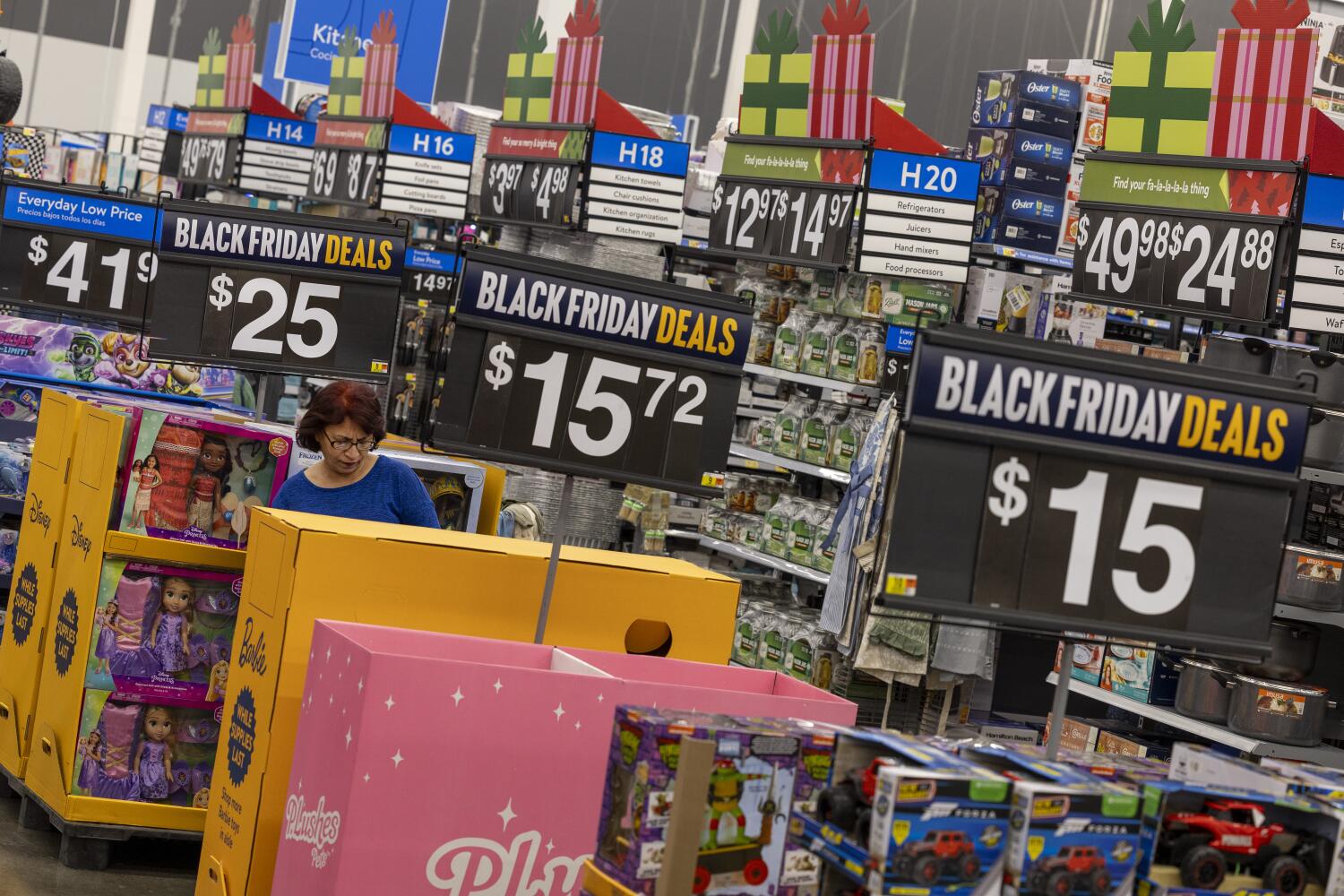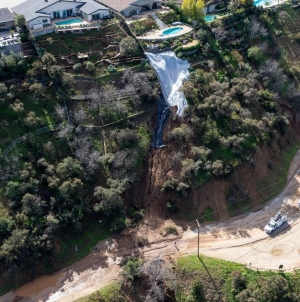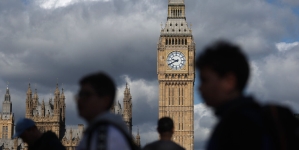-
Stores close for Thanksgiving but Black Friday promises crowds - November 24, 2023
-
A portion of Mulholland Drive, damaged by mudslides in winter storms, reopens - May 26, 2024
-
‘Maybe You Don’t Want to Win’ - May 26, 2024
-
Donald Trump Putting Law Enforcement in Danger: Attorney - May 25, 2024
-
Avoid the waters of these 5 L.A. County beaches this holiday weekend, public health officials say - May 25, 2024
-
Bawdy Comedy ‘Anora’ Wins Palme d’Or at Cannes Film Festival - May 25, 2024
-
Map Shows Heat Wave Zone Spread Into Five New States - May 25, 2024
-
Azusa police arrest suspected slingshot-wielding vandal - May 25, 2024
-
Donald Trump Hammers Judge Ahead of Jury Instructions - May 25, 2024
-
Sometimes U.S. and U.K. Politics Seem in Lock Step. Not This Year. - May 25, 2024
Stores close for Thanksgiving but Black Friday promises crowds

Stay home and eat your turkey. Most stores, other than supermarket and pharmacy chains, aren’t open until Black Friday morning.
The frenzied mall mobs characteristic of Black Friday — and Thanksgiving, until COVID shutdowns squashed that retailer move to out-compete one another — had faded even before the pandemic, with the growth of e-commerce and ever-earlier holiday promotions, which this year began well before Halloween.
Despite evidence showing that shoppers recently have pulled back, data from consumer surveys indicate that overall spending is expected to hit unprecedented levels this holiday season.
U.S. consumers, buoyed by a robust labor market, have demonstrated unexpected resilience even as they contend with stubborn inflation. But to pull off this spending feat, a significant number of shoppers are expected to rely on credit cards and buy-now-pay-later plans to fund their holiday spending this year.
“They might buy fewer gifts because things are more expensive, but we expect spend to be up,” said George Noceti, a wealth advisor at Morgan Stanley. “So we think that this will be another banner year in terms of Black Friday, Cyber Monday, and all the discounting that goes on in January.”
The National Retail Federation predicted that holiday spending will be up 3% to 4% from last year, reaching record levels between $957.3 billion and $966.6 billion. The increase in spending is predicted to slow from last year’s 5.4% boost, according to the trade group’s data.
Online shopping is expected to be robust, starting on Thanksgiving.
“Now it’s very online focused, and we’re really looking to see the online velocity surge on the major days like Black Friday and Cyber Monday,” said Vivek Pandya, lead analyst at Adobe Digital Insights. In line with recent years, e-commerce sites are expected to be inundated on Black Friday and Cyber Monday as consumers shop from the comfort of home.
The four-hour window from 6 to 11 p.m. Pacific time Monday is expected to be the busiest shopping period of all, with spending projected at nearly $4 billion, according to Adobe Analytics data.
Black Friday may not be the bellwether of the holiday shopping season that it once was, but overall retail sales during the season remain an important gauge of consumer health and a key source of retailer profits. Consumer spending on goods and services accounts for nearly 70% of the nation’s economic activity.
Although retail sales and consumer confidence fell in October, people feel differently about the holidays.
“We’re seeing disproportionately more optimism as it relates to holiday shopping versus regular day-to-day and regular discretionary shopping,” said Mrin Nayak, a managing director and partner leading holiday research at Boston Consulting Group.
Consumers want major discounts, and they are likely to find them this year. Holiday discounting lagged in 2020 and 2021 in response to economic uncertainty and fueled by consumers’ increased savings during the stay-at-home era of the pandemic.
Given the precarious situation of many consumers, retailers know that shoppers are demanding major discounts — and will hold out for the best deals. Analysts project that many shoppers will also rely on credit cards or buy-now-pay-later programs to finance their holiday purchases, a strategy that carries the risk of added interest and other costs.
Many retailers offer buy-now-pay-later programs. And most buy-now-pay-later apps — backed by companies including Afterpay, Klarna and Affirm — let users split their final bill into four interest-free payments, an attractive alternative to using credit cards, which have an average interest rate more than 19%, according to November data from Bankrate.
“The consumer is bargain-hunting this year,” Nayak said. “They are looking for deals to counter inflation, and they are looking to make sure that they’re shopping at places that give them really differential value versus the rest of the year.”
The latest Adobe Analytics figures show that in the days leading up to Black Friday, retailers were already marking down products in popular categories: Electronics, appliances, toys and apparel were discounted on average more than 20%.
“I think because we’re seeing this level of discounting that we’re profiling across these categories, it’s helping keep consumers incentivized to spend this season,” Pandya said. “But we’re expecting the discounts to get bigger and better on these major days between Black Friday and Cyber Monday.”
Low unemployment is expected to help power the shopping season. The U.S. job market has remained steady despite pressure from rising interest rates, with employers adding an average of 204,000 jobs a month between August and October.
“The unemployment rate is extremely low, so people are getting a paycheck,” Noceti said.
Gen-Z and millennials are predicted to spend big this year, fueled by low unemployment and healthy wage gains in their demographics.
“Labor markets have disproportionately favored younger generations that might have more disposable income this holiday season,” Nayak said. “And so we’re expecting to see that divergence in the consumer based on generation on willingness to spend.”
One third of Gen-Z and millennials plan to spend more on holiday gifts than last year, according to findings from Boston Consulting Group. At the same time, only 20% of baby boomers plan to spend more, squeezed by inflation and fixed income budgets.
Source link
































